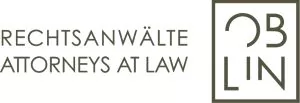In light of the decrease of new infections, Austria's economy slowly began to reopen in April this year. Further to the easing of preventative measures aimed at alleviating the economically strenuous effects caused by the pandemic, the government has introduced its new Entry Regulation ('Einreiseverordnung') 2021,1 which stipulates the legal requirements and conditions for entering the country.
What constitutes professional purposes?
Temporary short-term travel for professional purposes is possible, yet requires the following to be established:
- Entry must be directly related to professional endeavours;
- Leaving Austria for professional reasons requires these professional reasons to still exist upon re-entry;
- Time connection with business appointment is required;
- Professional travel must be verifiable, i.e. providing details as to the date, place and duration of business appointment, credible means of verification may include confirmation by an employer, business letter from a company, order confirmations, delivery bills etc;
- Professional travel may involve travel for purposes of attending a job interview, caregivers offering 24h medical services or partaking in professional development trainings and seminars.
Document Prerequisites
Entry into Austria is conditional upon the provision of any of the three means of verification:
- Negative Test Result
- PCR verified by a medical authority (not older than 72h);
- Antigen test verified by a medical authority (not older than 48h);
- Rapid antigen self-test entered into an official data processing system (not older than 24h).
- Vaccine Certificate
- Recognized administered vaccines include: BioNtech/Pfizer; AstraZeneca; Johnson & Johnson; Moderna; Sinopharm/BOBP, Sinovac-CoronaVac;
- Validity of vaccination certificate:
- Two inoculations vaccine: valid from 22nd day after the first dose lasting for 90 days from the first vaccination date, validity extends for an additional 270 days from day of first vaccination;
- One inoculation vaccine: valid from 22nd day after first dose until 270th day from vaccination day.
- Proof of Past Infection and Recovery
- A medical or recovery certificate from a doctor or public authority (e.g. self-isolation order) confirming that the individual has survived the coronavirus for 180 days after a SARS-CoV-2 infection;
- Proof of neutralising antibodies is valid for 90 days from test date and accepted as a recovery certificate.
Proof of the three aforementioned forms of verification must be issued in German or English (otherwise official health certificate must be used as proof)2 and may include: medical certificate, official test result, vaccination certificate/card/passport (electronic or physical copy).
Additional Legal Requirements
In addition to the presentation of these documents, further legal requirements may have to be observed. Which terms apply will vary depending on the country of departure and cause of entry. At present, there are three main country categories each of which give rise to different entry conditions:
- Category I – Travellers from safe countries with low incidence rate
- Type of entry allowed: any;
- Prerequisites: negative test or vaccination certificate or proof of recovery from past infection allows individuals to avoid having to register online or quarantine, if none are provided registration using pre-travel clearance form is required in addition to a PCR or antigen test being carried out promptly (at least within first 24h after entry);
- Travellers must have been in these areas during the last ten days;
- Regions or states with low epidemiological risk are listed in Appendix 1.3
- Category II – Travellers from virus variant areas
- Type of entry allowed: Austrian citizen, Austrian residents, entry for humanitarian or other compelling reasons, i.e. in the interests of the country, e.g. medical necessity or business travel;
- Prerequisites: negative molecular test result (g.a PCR test) or a medical certificate (obligatory testing is also applicable to travellers who are fully vaccinated or who have recovered from COVID-19);
- Travellers must have been in these areas during the last ten days;
- A 10-day quarantine requirement is generally imposed, yet self-isolation may be ended early upon obtaining a negative PCR test result on the fifth day after arrival (arrival day is considered day zero, not day one);
- Virus variant areas are listed in Appendix 2.4
- Category III – Travellers from all other countries
- Type of entry allowed: entry from any country not mentioned above is technically possible;
- Prerequisites: any of the four methods of verification will suffice, but if unable to provide any such documentation a 10-day quarantine will be imposed (again this may be reduced to five days provided the conditions mentioned above are fulfilled).
Most individuals must complete an online pre-travel clearance form, which can be filled in 72 hours before entry at the earliest. Commuters can use the form more than once but have to renew it every 28 days. Exempted from the mandatory registration are travellers who:
- Enter from a state or region listed in Annex 1 (i.e. low epidemiological risk) and
- Have stayed exclusively in a state or region listed in Annex 1 or in Austria for the past ten days and
- Are in possession of a certificate in the sense of the 3-G rule (German: geimpft, getestet, genesen – vaccinated, tested, recovered)
Professional Travel with Families
- Travel with family is permitted if entering from a country with low epidemiological risk;
- Family members must provide any of the three means of verification, i.e. a medical certificate, negative test result, vaccination or recovery certificate, otherwise a PCR test or antigen test must be carried out within 24 hours upon arrival.
- Family members from any other countries must provide either:
- Vaccination certificate proving receipt of first dose at least 14 days ago to avoid quarantine and registration requirements;
- Unvaccinated children under 18 are exempted from registration and quarantine requirements;
- In all other cases family members must provide any of the aforementioned means of verification and enter quarantine (possibility for early termination after five days applies).
Skilled Workers ('Fachkräfte')
Example I – EU/Swiss nationals not living in Austria but employed (having a job) in Austria
Skilled workers are allowed to enter Austria irrespective of their country of residence, yet whether or not quarantine requirements are imposed depends on the country of origin as well as whether the individuals concerned are vaccinated or have recovered from COVID-19 (see above).
Example II – Third country nationals, individuals living in a third country individuals wishing to be physically present in Austria to search for employment
Individuals, who seek entry from a virus variant area or country are not permitted to travel to Austria and spend time in the country unless for reasons of e.g. attending a job interview that is not conducted virtually/online (proof must be shown upon arrival). A negative test result is a prerequisite and quarantine must be entered unless entering from a low epidemiological threat region (possibility for early termination after five days applies).
Job seekers without a job interview, are allowed to enter Austria provided no visa requirements apply and the relevant conditions and legal requirements outlined above are observed.5
Example III – Third country national who have applied for residence permit (process completed)
Individuals who received an invitation from the Immigration and Residence Authority ('Aufenthaltsbehörde') may enter Austria without having to go into quarantine to collect their residence permit in person. This requires presenting the invitation letter in addition to any of the aforementioned forms of verification. Special test and document requirements apply and vary depending on whether entering from a virus variant area or country with a low epidemiological risk (same as outline above).
Comment
It is likely that international travel will take longer to rebound than business trips undertaken at domestic level. This is largely due to the myriad of wide-ranging and complex government regulations as well as country-specific infection rates. For the foreseeable future, it is thus anticipated that travel due to professional commitments will require the provision of additional documentation, e.g. vaccination, verification of reason for travel, temporary visas etc. It is also likely that rental or personal means of transportation will replace short regional flights for the foreseeable future. To ensure demands on healthcare systems are kept at a manageable level, lockdown and other preventative measures may be put in place or loosened temporarily. This will ultimately impact cross-border travel, potentially reducing the window of possible travel opportunities from months to only weeks or even days. How fast worldwide business travel will return to its former state is of yet undetermined and will depend on the rollout and rate of vaccinations.
Business travellers seeking to enter Austria are therefore best advised to monitor travel warnings of their country of residence as well as the policies and amendments implemented by the Austrian government in advance of their planned trip.
1 The COVID-19 Entry Regulation 2021 was last amended on 8th July and is currently valid until 31 August 2021 (inclusive). Available via: https://www.ris.bka.gv.at/GeltendeFassung.wxe?Abfrage=Bundesnormen&Gesetzesnummer=20011574
2 Available via: https://www.ris.bka.gv.at/Dokumente/Bundesnormen/NOR40234210/II_222_2021_Anlage_4.pdf.
3 Since 8th July these countries include: Albania, Andorra, Armenia, Azerbaijan, Australia, Belgium, Bosnia and Herzegowina, Brunei, Bulgaria, Croatia, Cyprus, Czech Republic, Denmark, Estonia, Finland, France, Germany, Greece, Hong Kong, Hungary, Ireland, Iceland, Israel, Italy, Japan, Jordan, Canada, Quatar, Cosovo, Latvia, Lithuania, Luxembourg, Macau, Malta, Moldova, Montenegro, Monaco, New Zealand, Netherlands, North Macedonia, Norway, Poland, Portugal, Principality of Liechtenstein, Romania, San Marino, Saudi Arabia, Serbia, Sweden, Singapore, Slovakia, Slovenia, South Korea, Spain, Switzerland, Taiwan, Thailand, United States, Vatican and Vietnam.
4 Countries include: Botswana, Brazil, Eswatini, India, Lesotho, Malawi, Mozambique, Namibia, Nepal, Russia, Zambia, Zimbabwe, South Africa, Uruguay and the United Kingdom.
5 For additional information please contact the ABA Immigration and Residence Services via: https://www.workinaustria.com/en/your-request-to-the-aba-immigration-and-residence-services.
The content of this article is intended to provide a general guide to the subject matter. Specialist advice should be sought about your specific circumstances.

